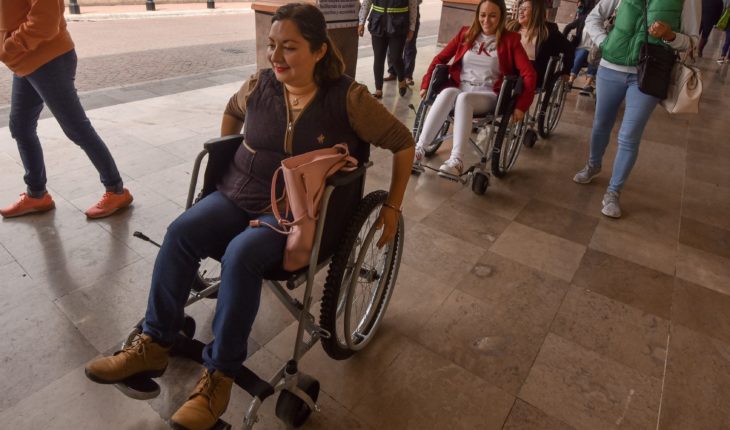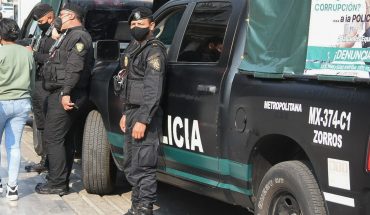Iovanna Cisneros stumbled upon a barrier when she finished high school, in her native Durango, and wanted to enter the university: she was told she could not study because she was deaf. If anything, she would have to bring her own interpreter in sign language, but she could not afford that in addition to the cost of the studies.
She went into military service and training as a paramedic, where she was accepted, and she continued to struggle to go to university to consider that it was the state that had to guarantee her her right to education.
She eventually managed to study a bachelor’s degree in Human Communication Therapy and moved to Mexico City, where she believes there are greater opportunities for her, and now works at the Mexican Institute of Sign Language.
Like Iovanna, one in two people with disabilities believes that their rights are respected little or nothing; in particular, visually impaired is the one that suffers the most from this violation of rights, in 52% of cases, according to the National Survey on Discrimination (Enadis) 2017.
You may be interested: AMLO discusses giving scholarships for people with disabilities to use Telethon centers
On the occasion of the International Day of Persons with Disabilities, the National Council to Prevent Discrimination (Conapred) presented the results of the Enadis focused on this population group.
Laura Barba of Conapred explained that discrimination is structural and is then reflected in people’s lack of access to various rights.
For example, in education, while the average illiteracy in the country is 3%, in people with disabilities it is 20.9%, and in cases of intellectual disability it rises up to 50.9%. In addition, one in five do not receive formal education.
The lack of academic readiness then results in more difficulties entering the labour market, where they also face discrimination.
Read more: Money to make inclusive transportation has been spent on other things, nGO denounces
While at the national level 68.5% of people, among those with disabilities, belong to the economically active population (PEA), that proportion barely reaches 35.6%, a difference of more than 30 percentage points.
Once they manage to enter the labour market, they have worse conditions than the rest. Only one in four people with disabilities has a formal contract and employment benefits, when in the rest of the population that proportion is two out of five.
For one thing, 25% of Mexicans consider people with disabilities to be of little help at work. This is just a prejudice, Barba explained, as the percentage is reduced among those who do know someone with disabilities and among young people.
Monica Maccise, the new president of the Conapred, stressed the importance of generating state policies for this population group. He applauded the announcement made in the morning by President Andrés Manuel López Obrador that the budget of the Pension for Persons with Permanent Disabilities was extended in 2020 from 9 to 14 billion pesos, but called for a policy of comprehensive support to be worked on at the same time.
Find out: I don’t see you or tell you: people with disabilities are nonexistent to the Mexican government
The presentation of the Enadis was attended by the Undersecretary of Welfare Ariadna Moniel, in charge of this sector, who ensured that the issue of disability at the federal level was disarticulated, so work is being done on the National Program for the Inclusion of Persons with Disabilities.
Questioned after the act on why a year of government he has not been appointed holder in the National Council for the Development and Inclusion of Persons with Disabilities (Conadis), he assured that she functions as chairwoman of the governing board and will remain, and denied that it violates the agency’s regulations.
Regarding the announcement made in the morning by the president that an agreement is being analyzed with the Telethon Rehabilitation Centers to serve more people, he was unable to give more information and only said that he is just going to look for Fernando Landeros, president of the Teletón Foundation, to talk about it.
What we do in Animal Político requires professional journalists, teamwork, dialogue with readers and something very important: independence. You can help us keep going. Be part of the team.
Subscribe to Animal Politician, receive benefits and support free journalism.#YoSoyAnimal
translated from Spanish: 1 in 2 people with disabilities see that they do not respect their rights
December 3, 2019 |





